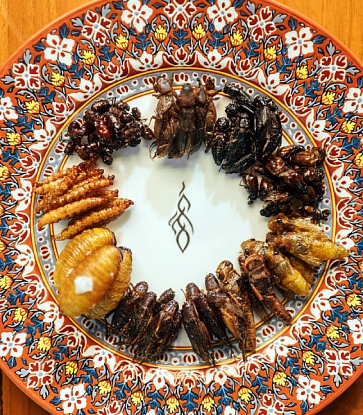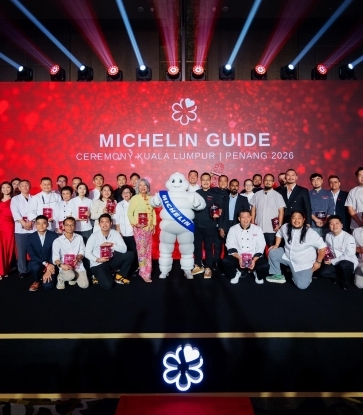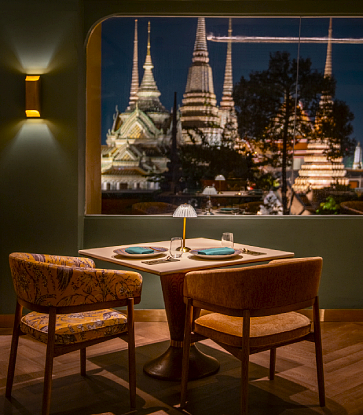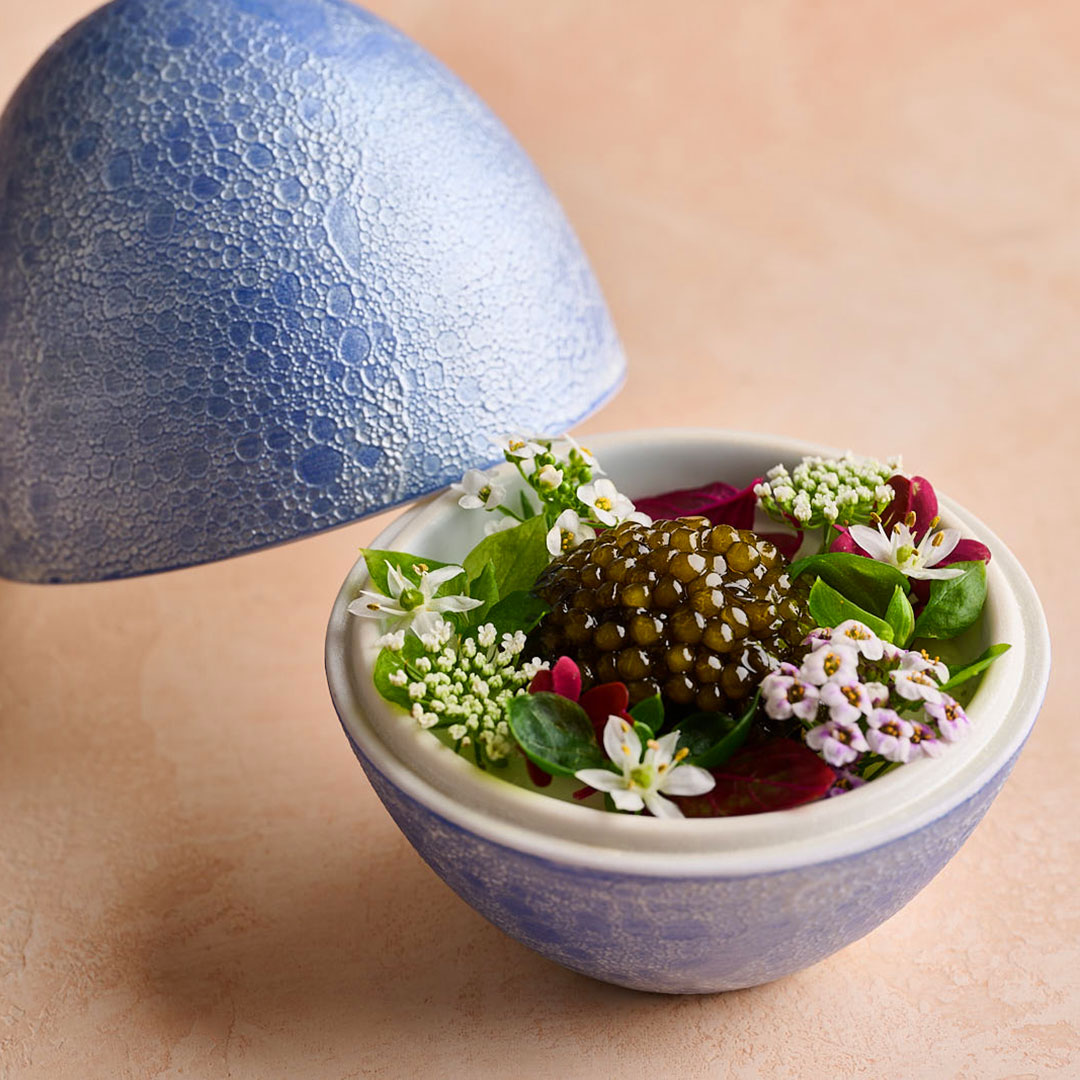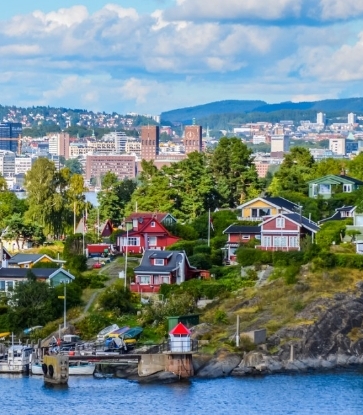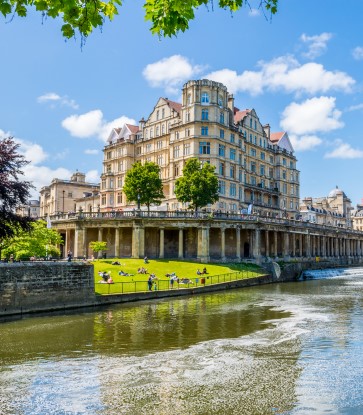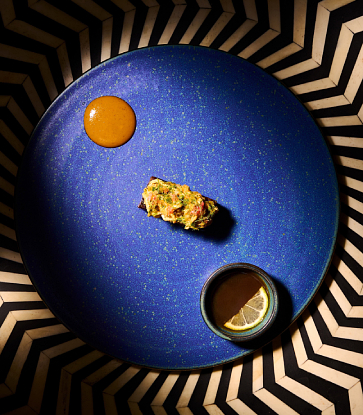“We never say we are waste-free. But Haoma has always been reducing as much waste as we can.”
Chef Deepanker ‘DK’ Khosla doesn’t strive solely for flavour. His culinary philosophy centres around sustainability. At Haoma, sustainability and care for the environment can be found in every step – from sourcing, to menu creation, to decoration. It’s alarming that every restaurant produces a significant amount of waste every day. Thus, Haoma strives to achieve the challenging goal of zero waste in everything they do, leading to recognition from the MICHELIN Guide. So far, this Indian restaurant is the only place in Bangkok to receive a MICHELIN Green Star in MICHELIN Guide Thailand 2023.
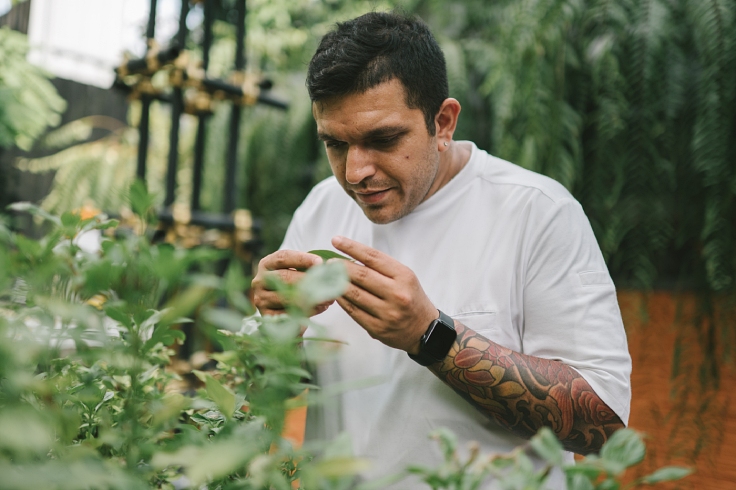
“To me, the zero-waste philosophy isn’t just about kitchens producing no waste. It begins with prevention of possible waste. Ingredients in plastic bags would cause plastic waste. So, we ask our suppliers to use eco-friendly substitutes. For example, wrap vegetables with banana leaves instead of plastic. Fish boxes must be reused. This way, less waste will enter our kitchen. Then, our kitchen tries to minimise waste. We turn food waste into fish feed for over 500 fish in our restaurant’s pond. If there’s more, we send it to our 5-rai [0.8 km2] farm in Ladkrabang where we raise chickens and grow vegetables. We now have sustainable supplies of chickens, eggs, and vegetables for our kitchen.”
Sustainability also extends to its front. From your first step through Haoma’s doors, you can witness how the entire green cycle works to bring water, food, and vegetables to your table. Discarded by too many restaurants, Haoma reinvents potato peel, bruised cabbage leaves, and broccoli stalks into appealing fine-dining dishes.

Chef Khosla created a sustainability centre to showcase waste minimisation potential. Seeds and grains in the centre serve as a reminder that human sustenance is plentiful and diverse. Consuming different ingredients can help us be less reliant on monoculture, which often depletes natural resources. There’s also a garden growing vegetables exclusively for the restaurant’s kitchen that further reflects Haoma’s commitment to sustainability.
When asked about the inspiration behind his sustainable restaurant, Chef Khosla does not hesitate in his reply, “I love this planet. I love the Earth. I want to create a better future for the next generation, and that includes my son. But you have to understand I don’t want to save the entire world, and never try to. I just want to help people around me – my family, my son, my colleagues. I want them to have a better tomorrow. I hope some guests will be inspired by our story and adjust some of their daily routines. At the end of the day, we’re still a restaurant, not a school. So, we still have to cook, whilst telling our story.”

Five easy zero-waste tips you can do at home
If you are inspired by the MICHELIN Green Star chef and his philosophy, here are zero-waste practices from Haoma that you can start now.
Reduce incoming plastic: Chef Khosla repeatedly talks about bringing less plastic home. Do not take or ask for a plastic bag whilst shopping. Don’t forget reusable bags. You can also support local communities by using wicker baskets. When you see shops wrapping produce with banana leaves instead of plastic, support them. Bring your own reusable leftover containers. You might forget, or it might feel inconvenient at first. Don’t fret. It’ll become an indispensable habit over time.
Use natural waste compost: Chef Khosla’s fishpond is another eco-friendly innovation. Natural rainwater is harvested and purified before being reserved for the vegetable garden and freshwater pond that every guest strolls past. The pond also serves as an ingredient source and food waste composter. Waste from Haoma’s kitchen is turned into feed for more than 500 fish and chickens in its urban farm.
Utilise every part of each ingredient: One of Haoma’s cooking philosophies is to use every ingredient to its fullest. "We use every part, from the meat to offal. Inedible parts are turned into fish feed. The same goes for vegetables. We find a way to use every part. This is why Haoma produces minimal waste.”
Calculate portions: Appropriate portions can significantly reduce food waste. “We dare say our guests won’t leave any leftovers. Our ten-course menus change every quarter. Each dish contains the right amount of calories to fill you up. The dish will be empty when you finish.”
Have a diverse diet: Chef Khosla insists that consuming a diverse diet will result in structural waste reduction. Various origins make resource-intensive monoculture less necessary. Ingredients from small communities around Thailand are available at several Bangkok markets such as Khlong Toei, Samyan, or Thewet.
Hero image: © Anuwat Senivansa Na Ayudhya/ MICHELIN Guide Thailand





